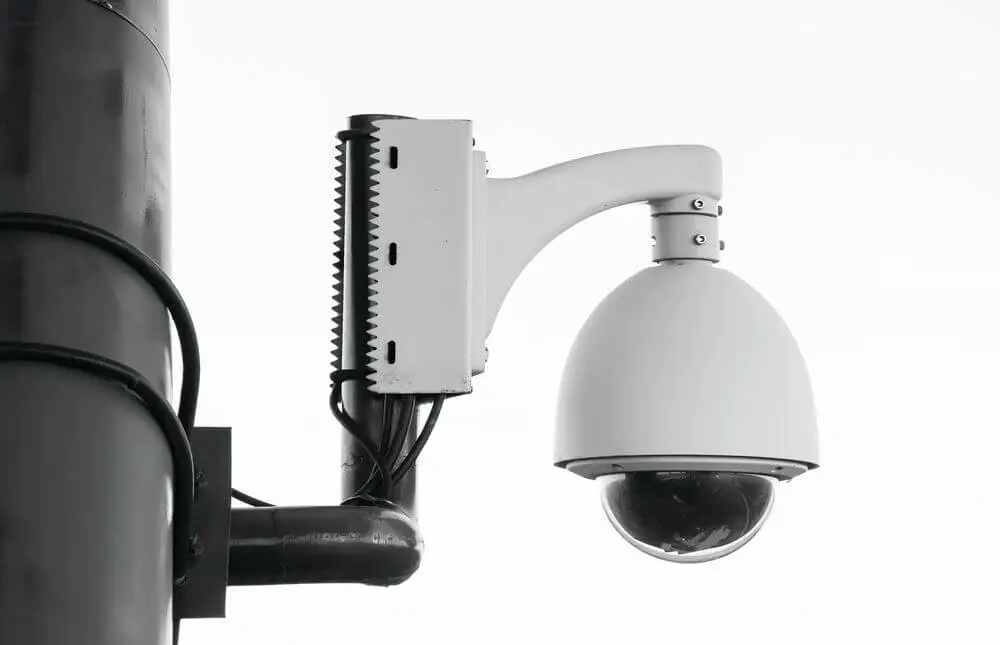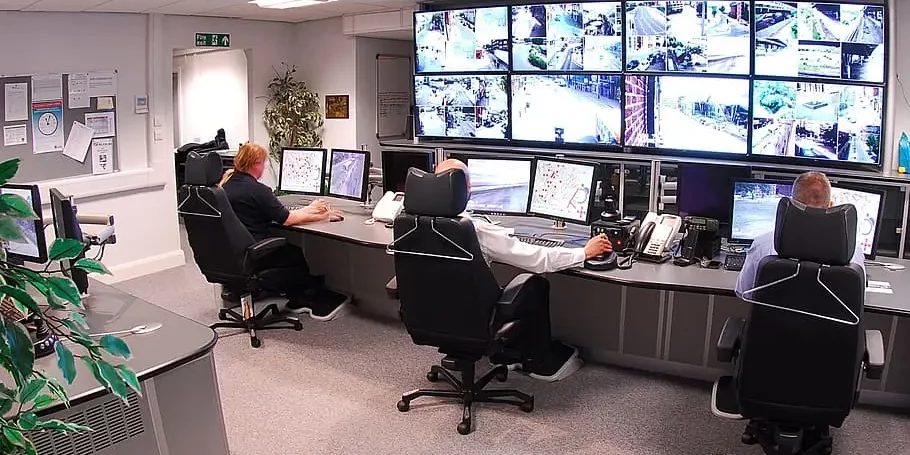In an era where data is considered the new gold, robust security measures have become an imperative for businesses across the globe. The significance of safeguarding sensitive information, valuable assets, and ensuring the safety of employees cannot be overstated. As businesses continue to evolve, so do the technologies that support them. One notable shift is the growing adoption of cloud-based solutions in various industries.
In the world of video surveillance, cloud-based security solutions provide a more efficient, modern alternative to traditional on-premise storage. Before settling on a video surveillance solution for your business, it’s important to examine the advantages, disadvantages, and various other considerations related to cloud platform for security cameras.
The Importance of Storage in Video Surveillance
Video surveillance is not just about capturing footage; it’s about storing and managing that footage effectively. The role of storage in video surveillance is crucial, as it directly impacts the accessibility and reliability of recorded data.
The term “video surveillance” has a broad definition, covering security, monitoring, and even analytics. To accomplish these tasks effectively, video footage needs to be stored efficiently. Whether it’s for incident review, evidence collection, or future analysis, reliable storage is paramount.
Different Types of Storage Solutions for Security Cameras
Traditional security camera systems often rely on Network Video Recorders (NVRs) or Digital Video Recorders (DVRs) for on-premise storage. These devices have been the standard for many years, providing localized storage for video feeds.
While on-premise storage offers some benefits, such as immediate access to footage, it comes with limitations. These limitations include scalability constraints, maintenance requirements, and the risk of data loss in case of system failures.

What is Cloud-Based Storage?
Cloud-based storage solutions have gained significant traction as a modern alternative to on-premise storage for security cameras. But what exactly is cloud-based storage, and how does it differ from traditional approaches like NVRs?
Fundamentals of Cloud-Based Security Solutions
Cloud-based security solutions involve storing video footage and data remotely on a cloud server hosted by third-party providers. Unlike on-premise storage, cloud storage eliminates the need for physical hardware on-site. In other words, with on-premise storage, you rely on local servers and NVRs, whereas cloud storage leverages the power of remote servers and the internet.
How Does It Work?
Cloud solutions operate by capturing video feeds from security cameras, compressing and encrypting the data, and then transmitting that data to remote servers. This allows for the storage and retrieval of video footage from virtually anywhere with an internet connection.
Convenience of Remote Access to Security Systems
One of the standout advantages of cloud-based storage is the ability to access security systems remotely. Whether you’re on-site or miles away, you can view live feeds, review recorded footage, and manage your cloud security system through user-friendly interfaces.
Cloud Video Storage vs. On-Premise Video Storage
As businesses evaluate their video surveillance needs, they must weigh the pros and cons of cloud-based storage versus on-premise options. Comparing the two solutions can help businesses make an informed decision that best meets their surveillance needs.
Scalability
Scalability is a critical factor in video storage. Cloud-based storage solutions excel in this regard, as they allow for easy resource expansion based on the growing needs of your business. In contrast, on-premise solutions may require significant investments to scale up.
Cost Structure
Comparing the cost structures of cloud and on-premise storage is essential. Cloud solutions typically follow a pay-as-you-go pricing model, reducing initial capital expenses. On the other hand, on-premise storage may involve substantial upfront costs for hardware and infrastructure.
Maintenance
Maintaining your video storage system is a continuous task. Cloud-based storage solutions typically require less maintenance effort, as the responsibility for server maintenance falls on the cloud service provider. In contrast, on-premise security solutions demand more hands-on maintenance, including server hardware upgrades and software updates.
Data Security
Data security is a top priority for businesses. Cloud-based storage providers implement robust cyber security measures, including encryption and access controls, to protect your data. With on-premise storage, you have more control over security but also more responsibility for its implementation and upkeep.
Data Redundancy and Backup
Cloud storage offers redundancy options to ensure data availability even in case of hardware failures. On-premise storage requires businesses to implement their backup strategies, which can pose a risk to sensitive data if not managed effectively.
Reliability and Uptime
Uptime is crucial for video surveillance systems. Cloud solution providers often boast high uptime percentages, ensuring constant access to your data. On-premise configurations may experience downtime due to maintenance or technical issues.
Data Ownership and Control
Consideration of data ownership and control is essential. With cloud storage, you entrust your data to a third-party provider, while on-premise storage grants you greater control but also greater responsibility.
Impact of Data Sovereignty and Legal Considerations
Depending on your location and industry, data sovereignty and legal considerations may come into play. Cloud storage providers often have global data centers, while on-premise solutions keep data within your physical premises, potentially affecting compliance with local regulations.

Is Cloud Storage Right for Your Security Camera System?
The suitability of cloud storage for your security camera system depends on various factors, including your business needs, industry, and specific requirements.
Evaluating Business Needs
The first step in any evaluation is to assess your business’s unique needs, including the size of your surveillance system, the number of cameras, and your storage requirements. Consider whether scalability, remote access, and cost-effectiveness are crucial for your organization.
Considerations for Different Industries and Organizations
Different industries may have distinct requirements for video surveillance. For example, retail businesses may focus on loss prevention, while healthcare facilities prioritize patient safety. Tailor your storage solution to align with your industry’s specific needs.
Factors to Weigh When Deciding Between Cloud and On-Premise Storage
Make an informed decision by weighing the factors discussed in the previous section. Consider your budget, scalability needs, security requirements, and your organization’s willingness to manage and maintain on-premise storage.
Why Choose Arcules for Your Surveillance Needs?
The world of video surveillance is evolving, and cloud-based software has emerged as a compelling alternative, offering scalability, cost-efficiency, reduced maintenance, and robust data security. The decision to choose cloud storage (instead of NVR or DVR) for your security camera system should be based on a thorough evaluation of your business needs, industry requirements, and specific considerations.
Arcules, a leader in the field of cloud-based security solutions, offers a cutting-edge approach to video surveillance. With a track record of providing innovative, reliable, and scalable solutions, Arcules has become a key partner for businesses across various industries, including retail, healthcare, education, and more. Our solutions are tailored to meet the unique security challenges of each sector, ensuring the safety and protection of your assets, employees, and customers.
As you contemplate the future of your video surveillance system, consider the advantages of cloud-based storage and explore innovative solutions like Arcules. To discuss your unique business needs for surveillance, we encourage you to book a consultation with our team of experts. Your business’s security is our priority, and we’re here to help you embrace the future of video surveillance.
